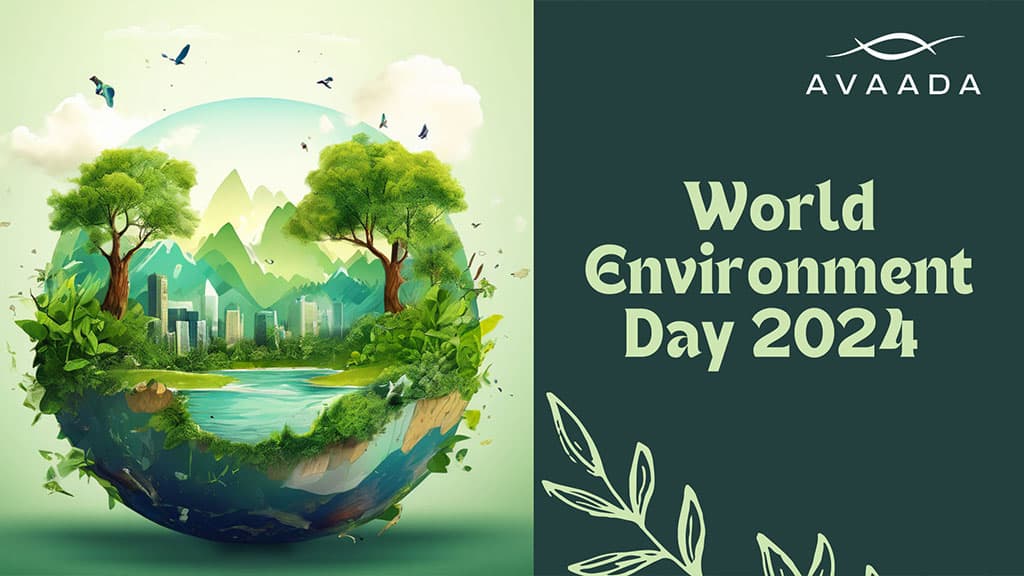I still remember my childhood—a time when the sky was a crisp blue, and the air was sweet with the scent of flowers. Birds sang, and the world seemed enveloped in a vibrant life force. However, as years passed, this idyllic scene has largely given way to a world of concrete, where polluted skies and dying oceans highlight the devastating impact of human activity. Every day, we witness the loss of species, destruction of forests, and displacement of communities. Yet, amidst this dire scenario shines a glimmer of hope.
On this auspicious occasion of World Environment Day 2024, we come together not just to reflect but to act, to save our revered Mother Earth. This year’s theme, “Land Restoration: From Desertification to Transformation,” is more than a slogan—it’s a desperate yet hopeful call to action.
Mother Earth: A Sacred Bond
The sacred texts of Hinduism—the Vedas, Puranas, and Upanishads—have long taught us to view the environment as a divine entity. The Atharva Veda poignantly reminds us of our bond with the planet: “माता भूमिः पुत्रोऽहं पृथिव्या” (Earth is my mother, and I am her son). This eternal connection underscores our duty to cherish and protect our environment.
The Rigveda further enhances this connection, stating, “द्यौर्वै नो द्यावापृथिवी अभवम्” (Heaven is my father, and earth is my mother), which highlights the intrinsic link between humans and the cosmos. Our scriptures not only emphasize the sanctity of the Earth but also our role in its stewardship.
Our Dharmic Responsibility to Restore the Balance
As the Shanti Mantra inspires us: “ॐ सर्वे भवन्तु सुखिनः सर्वे सन्तु निरामयाः। सर्वे भद्राणि पश्यन्तु मा कश्चिद्दुःखभाग्भवेत्।” “May all be happy, may all be free from illness, may all see what is auspicious, may no one suffer.” This mantra embodies our collective aspiration for a healthy, sustainable world where not only humans but all living beings thrive. It challenges us to view environmental protection not just as a duty but as a necessity for the well-being of all life.
Dharma, the moral and ethical law governing individual conduct, extends to how we interact with our environment. Today, land degradation, desertification, and drought threaten our very existence and the health of our ecosystems. As stewards of the Earth, it is our dharma to integrate sustainable practices into our lives and businesses.
Actions for Today, Hope for Tomorrow
This World Environment Day, let’s translate our words into actions by engaging in initiatives that reflect the compassion and peace advocated in the Shanti Mantra:
- Planting Trees: Combat environmental degradation directly and gift plants on special occasions to promote green habits.
- Rejuvenating the Land: Support afforestation, promote soil conservation techniques, and engage in regenerative agriculture to restore the vitality of our land.
- Embracing Renewable Energy: Transition from fossil fuels to renewable sources like solar, wind, and green hydrogen.
- Practicing the 3 R’s: Reduce, Reuse, and Recycle to minimize our ecological footprint and foster a sustainable lifestyle.
At Avaada, we are committed to integrating the principles of dharma into our core business strategies. Our dedication to renewable energy and afforestation projects stands as a testament to our commitment to combating desertification and drought. We strive to ensure that our actions leave a positive impact on both people and the planet.
In Conclusion – As we observe this day, let us blend the ancient wisdom of the Vedas with modern technological innovations. Together, we can restore our lands, prevent further degradation, and foster a world where humanity thrives in harmony with nature.
May divine blessings inspire and guide us on this noble journey.








